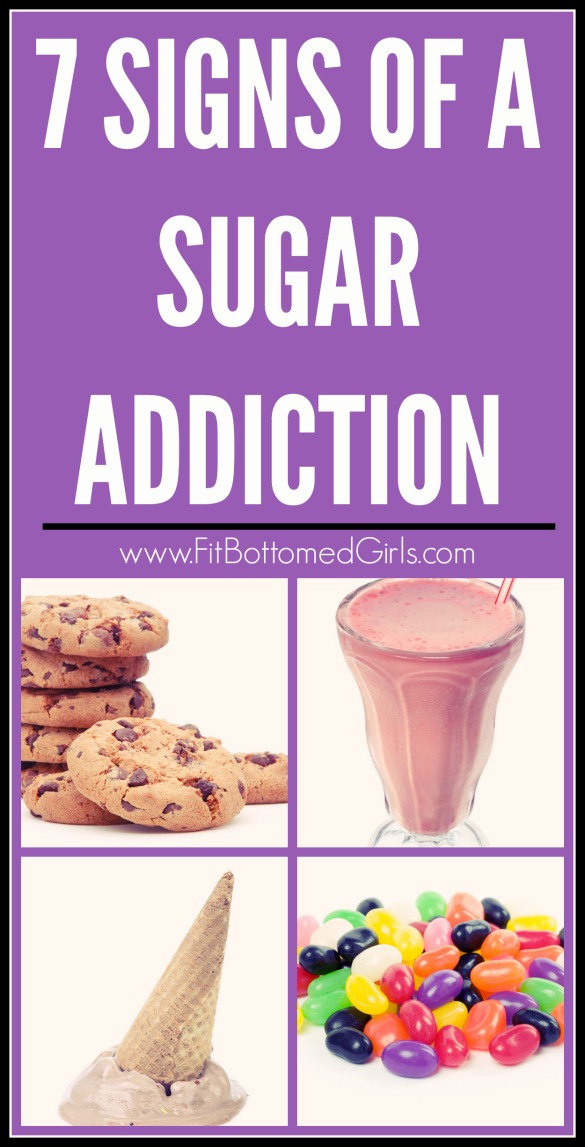The 7 Signs of Sugar Addiction
Ya’ll remember Jonathan Bailor, who did that amazing guest post for us on why a calorie is not a calorie? Well, he’s baaack! And this time he’s tackling a rather sticky — and sweet — issue: sugar addiction. Read on for the first in this two-part series on sugar addiction. We’ll cover if it’s real, how to spot it and how to avoid it.
Delicious. Toxic? Addictive?! What’s the deal with sugar?
We all know sugar is delicious, and the media has had a field day touting the term “toxic,” so let’s focus on whether or not there’s science proving that sugar is addictive.
What is An Addiction?
We frequently hear people talking about being “addicted” to their phone or their favorite TV show, but is their mind really focused on their iPhone like a heroin user is after another hit? Of course not. But it certainly does seem like many non-drugs have nearly drug-like effects on us. For example, sugar.
To formally define addiction, let’s turn to the Diagnostic and Statistical Manual of Mental Disorders, Volume IV (DSM-IV). It tells us that we have chemical dependence on a substance if we experience at least three of the following symptoms in twelve months:
1. Increased Tolerance: Needing more for the same effect
2. Withdrawal: Significant negative impact if we stop
3. Over Use: Consuming it more than it is intended to be
4. Loss of Control: Having our behavior meaningfully influenced by the substance
5. Exceptional Effort to Obtain: Going beyond what is reasonable to get it
6. Over Prioritization: Allowing its use to interfere with more important activities
7. Ignoring Negative Consequences: Continuing use regardless of disproportionately negative consequences
Next, let’s talk about the signs of sugar addiction …


Comments
There are no ifs ands or buts on the subject of food addiction: it is as real as cocaine or alcohol addiction and, in fact, affects exactly the same pleasure/impulse control centers of the brain as recognized drugs. This is especially true of what David Kessler calls hyperpalatable foods — foods dense in calories from sugar/fat/salt. Oxford University Press has just published the medical textbook on the subject: Food and Addiction: A Comprehensive Handbook, edited by Kelly D. Brownwell & Mark S. Gold. And I’ve just published the first holistic approach to food addiction, The Hunger Fix, which is based on that cutting edge science.
Substance abuse researchers say that the brain adaptions that result from regularly eating these foods, which are proven to increase consumption, are likely to be more difficult to change than those from cocaine or alcohol because they involve many more neural pathways. Almost 90 percent of the dopamine receptors in the vental tegmental area (VTA) of the brain are activated in response to food cues.
Brand-new research also shows direct evidence of lasting and fundamental injuries to a part of the brain that helps us regulate our food intake, the hypothalamic arcuate nucleus. Within three days of being placed on a high-fat diet, a rat’s hypothalamus (the area of the brain that responds to the hormones that signal hunger and satiety, pair and maternal bonding and certain social behavior) shows increased inflammation; within a week, researchers see evidence of permanent scarring and neuron injury in an area of the brain crucial for weight control. Brain scans of obese men and women show this exact pattern as well.
Really great article, Jenn. Sugar consumption is serious stuff and I can’t wait to read part II! Also loved the input from Dr. Peeke above!
So informative! 🙂
I got to agree. Sugar addiction is one of the hardest addiction to break free. Simply because we all love sweet tooth. However, I learned to keep it in moderation and instead obtain sugar from healthier options like fruits. I love the smoothies I am making!
Comments are closed.